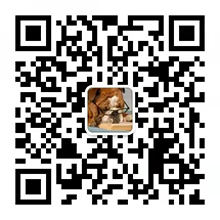一、虚拟语气怎么用
(1) 对现在情况的虚拟
对现在情况的虚拟,条件句中谓语动词用一般过去时,主句用“would/should/might/could+动词原形”。
(2) 对过去情况的虚拟
对过去情况的虚拟,条件句中谓语动词用过去完成时,主句用“would/should/might/could+have+过去分词”。
(3) 对将来情况的虚拟
对将来情况的虚拟,条件句中谓语动词可用should do, were to do或动词的过去式三种形式表示,但意义略有不同。should表示的可能性最大,动词过去式的可能性次之,were to do的可能性最小。主句谓语动词用“would/should/might/could+动词原形”。
(4) 错综时间条件句
有时条件从句谓语动词表示的动作和主句谓语表示的动作发生的时间不一致,这类句子称为错综时间条件句。此时主从句动词的形式应根据各自所表示的时间进行调整。
If you had taken my advice then, you wouldn&39;t be in trouble now.
如果当时听我劝,你现在就不会有麻烦了。(if条件句是对过去的虚拟,故用过去完成时,而主句是对现在的虚拟,故用“would+动词原形”形式。)
(5) 表示“建议、命令、要求、坚决做”等动词后的宾语从句常用“(should+)动词原形
(6) wish后的宾语从句
wish后的宾语从句用一般过去时表示现在的情况,用过去完成时表示过去的情况,用would/could do表示将来的情况。
(7) would rather 后的宾语从句
would rather后的从句常用一般过去时形式,表示现在或将来的情况;用过去完成时,表示过去的情况
(8)It is/was important (necessary, appropriate, proper, right, essential, vital, etc.) that
英语虚拟语气有什么用法
概念: 动词虚拟语气表示说话人的愿望, 假设, 猜测, 建议, 请求, 意图, 设想等未能或不可能成为事实的情况, 或者在说话人看来实现可能性很小的情况, 而不表示客观存在的现实
虚拟语气的表现形式: 通过句中谓语动词的特殊形式来表现. 这些特殊形式与谓语动词的某些时态相同, 但它们只表示语气, 而不表示时态, 但含有一定的时间概念
二、虚拟语气的用法
虚拟语气在简单句中的用法: 谓语动词用原形或may +动词原形
1.表示祝愿
a. Long live our country.
b. May you succeed.
c. May you be happy all your life.
2.表示命令
a. Everybody leave the room.
虚拟语气在非真实条件句中的用法: (使用虚拟语气的含条件句的复合句称为真实条件句)
1.表示与现在事实相反的情况时, if从句的谓语用动词的过去式 (be动词的过去式多用were, 而不用was), 主句的谓语用should / would / could / might +动词原形 (should多用于第一人称, would多用于二三人称, could / might可用于所有人称)p分页标题e
a. If I had more time, I should study computer better.
b. If he were not so busy, she would attend the meeting this afternoon.
c. If they didn’t take exercises every day, they wouldn’t be so healthy.
d. If you went to bed earlier, you would not be so sleepy in the morning.
e. If she invited me, I should go to the party.
2.表示与过去事实相反的情况时, if从句的谓语用had done形式, 主句的谓语用should / would / could / might + have done的形式
a. If she had invited me yesterday, I should have gone to the party.
b. I would have checked my paper again if I had had more time at yesterday’s exam.
c. If you had taken the teacher’s advice, you would not have failed in the exam.
3.表示与将来事实相反的情况时, if从句的谓语形式是: ①.完全动词过去式 (be的过去式通常用were); ②.should +动词原形; ③.were to do. 其中②, ③种情况都含有出乎意料之外之意; 主句的谓语的形式是: should / would / could / might +动词原形
a. If she should invite me tomorrow, I should go to the party.
b. If it rained / should rain / were to rain tomorrow, our picnic would be put off.
c. If I saw him tomorrow, I would pass your note to him.
d. I might come back if I were to miss the train.



